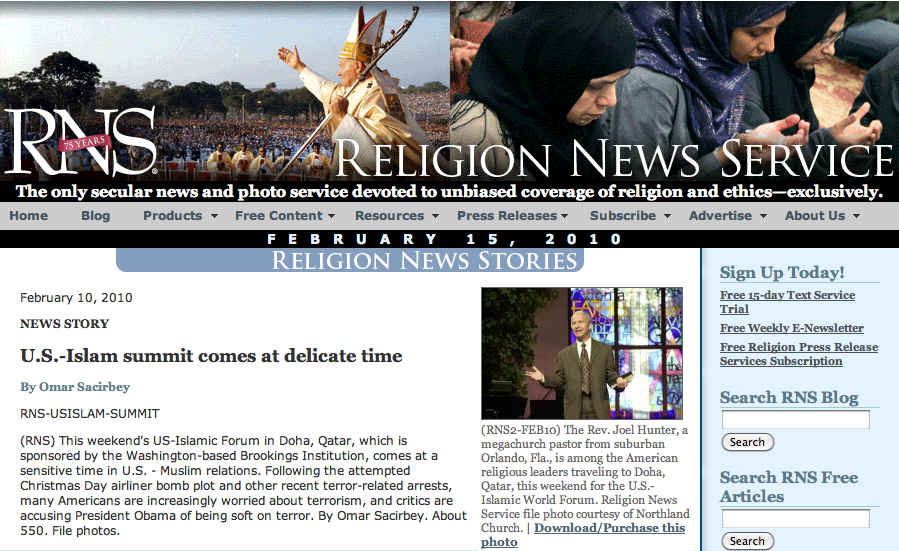U.S. Islamic Forum Raises Hope for the Future
 This year’s U.S.-Islamic World Forum, held Feb. 13-15 in Doha, Qatar, comes at sensitive time in U.S.-Muslim relations.
This year’s U.S.-Islamic World Forum, held Feb. 13-15 in Doha, Qatar, comes at sensitive time in U.S.-Muslim relations.
In a report for Religion News Service (RNS), journalist Omar Sacirbey wrote: “Following the attempted Christmas Day airliner bombing and other recent terror-related arrests, many Americans are increasingly worried about terrorism, and critics are accusing President Obama of being soft on Muslim extremists.”
He added that in the Muslim world, “many people are angry about the war in Afghanistan, U.S. drone attacks in Pakistan, the Israeli-Palestinian conflict, their own economic problems, and expect [President] Obama to deliver remedies faster than his administration may be able to.”
Now in its seventh year, the Forum has become the foremost meeting for positive cross-cultural engagement among leaders from the United States and the Muslim world—bringing together key leaders in the fields of politics, business, media, academia and civil society. It seeks to address the critical issues dividing the United States and the Muslim world by providing a unique platform for frank dialogue, learning and the development of positive partnerships between key leaders and opinion shapers from both sides.
American religious figures who attended this year’s conference said the sensitive state of U.S.-Islamic relations requires increased religious involvement in diplomacy.
Episcopal Bishop John Chane of Washington D.C., who has attended two previous forums, said: “When you have 1.5 billion Muslims, 2 billion Christians, and 13 million Jews, from an Abrahamic perspective, you have a lot of influence. Twentieth-century diplomacy has failed so far, and we have to recognize that you need religion in the mix.”
Dr. Joel C. Hunter, who has attended three forums, agreed: “In the Muslim world ... their faith is a very integral part of their foreign policy. They want to hear secular and religious ideas.”
Despite current tensions, observers say U.S.-Islamic relations are improving under President Obama.
“A lot of the Islamic world is more anxious to engage because we have a president who wants to restart relations with Muslims,” Dr. Hunter explained. “We’ve gone from a defensive mode to a development and diplomatic mode.”
Al-Husein Madhany, a Muslim-American scholar and technology activist who convened a conference workshop on how to use new media to build grassroots organizations and civic institutions, added: “We have a moment in history where there’s been a promise made by the leader of the free world for a new beginning. There’s an excitement in people’s voices about America that I didn’t hear during the previous administration.”

